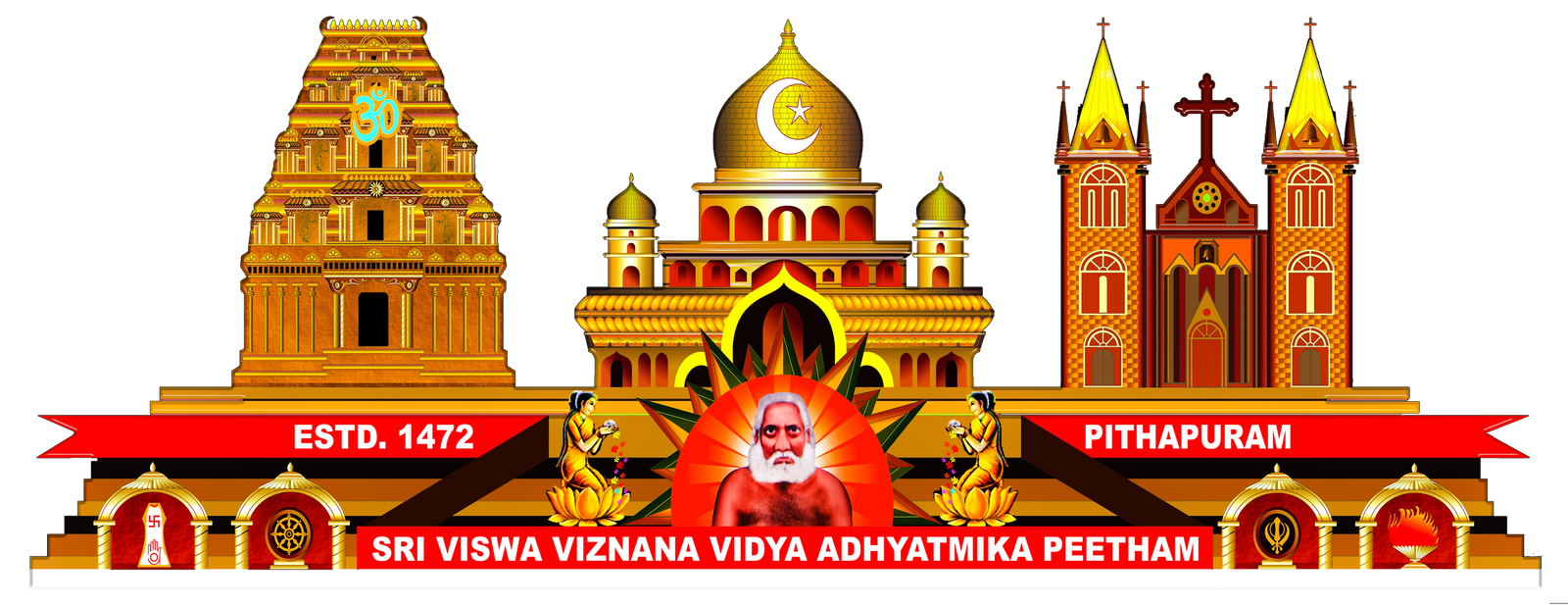Sha Philosophy – Chapter18: SIN – MORAL GOODNESS
Punya ( MORAL GOODNESS ) :
We find in literature that, the excellence of the human birth is due to its intellectual development and such human birth becomes fruitful when its intelligence shines as the light of knowledge ( wisdom ) . That wisdom makes him think about Heaven and to conclude that, he can obtain that Heaven by means of virtuous deeds. Then, with that determination, he broods over various methods to obtain “ Punya ( moral goodness ) “ and finally decides the first and foremost one is giving “ Dana ( donation ) “. He assumes this “ Punya ( moral goodness ) “ gives him wealth and enjoyment in this world and desired things in the next world ( Heaven ) . So , man has decided to give “ Dana “ . Later, when he resorts to give “ Dana “ he thinks, to whom it should be given , then he resolves, it should be given in the form of “ Donation of money “ to some sick person, some physically handicapped person or to some poor fellow. After that he has resolved, above all , the greatest “ Dana “ is donation of food , and then he is donating it, starting from a bolus or very common food to a pleasant feast to the poor. Thereafter man constructs Temples, Mosques, Churches or some charity houses. People think that by doing all these, they can gain “ Ashta Aiswaryas ( Eight Kinds of Wealth or Comforts ) “ in this world and after their death, in the next world, they can have the company of beautiful courtesans of Elysium, like Rambha and enjoy the pleasures like having coition with them. With such aspirations, many people are giving “ Dana ( alms ) “.
If we keep the cited matter in mind and think over it, it can be inferred and affirmed that, the man is doing virtuous deeds just for the sake of his liberation only. For instance: a rich man donates to a sick person because, he wants to keep away his dislike towards that sick person. Similarly, he donates to a crippled person, because of the fear that he or his children may become crippled. He donates to a poor man so that such a wretched state shouldn’t be cursed to him. He gives alms to the person, who cries for food with volition that, he himself should never starve for food. People build Temples, Mosques, Churches and charity houses with the volition to annihilate the fruit of their sinful and vile deeds. After they complete the construction of the above , they are able to resolve that the stain caused by their sin is gone away. Such people are not genuinely virtuous. Their “ Dana ( donation ) “ won’t be fruitful. People are doing such charitable deeds, only to keep away the stain, which originates from their sins ( vile deeds ). Such charitable deeds won’t pay off virtue, and they won’t give Heaven.
The man, who wants to earn “ Moral Goodness “ should,
. Introspect and inquire his own behaviour and lead his life without touching ( involving in ) the sin or vile deeds.
. Comprehend other souls and recognize the soul ( individual ), which has reached the sublime state of Eeswara ( Godhood ).
Such a great soul endures all the difficulties and hardships with patience and experiences them till they are over. Such an individual always maintains smile on his face with contentment though he is in troubles. He won’t crave for anything. He is very simple and innocent . Giving donation to such a great soul is better than giving to a sick man or a crippled man or a poor man who cries for food . Therefore, one should identify such great souls among human beings and give donation to them. That donation will certainly yield Punya ( Moral Goodness ). About such “ Dana ( donation ) “, it is said in the Holy Scripture Bhagavatam ( Telugu ) that,
Bhuvarenya , itti punyapradeshamandu cheyu danamu Hari sahasrambichchu. For giving “ Dana ( donation ) “ , in such a holy place ( to such a holy personality ), Hari ( Lord Vishnu ), will give back thousand times”.
If we examine this statement, we can understand that the man, who donates to such great persons, donates it without any desires such as gaining “ Ashta Aiswaryas” in this world or enjoying the sensual pleasures like having coition with beautiful courtesans of Elysium, like Rambha etc. in the next world.
The man, who donates to such great personalities, without having any desire or motive, realizes that,
. His heart gets widened with generosity.
. His spiritual power to comprehend the Supreme Knowledge of God increased by thousand times as compared to that in his previous state.
. He is advancing towards attainment of salvation.
Such a man, as is well-versed in charity , gives donations to others without any desire or expectation. That munificent ( highly generous ) man always shares the troubles and hardships of his fellow beings and helps them to become free from those difficulties. Such a man will be revered by his fellow beings as an embodiment of virtue ( Moral Goodness ) . However, in that position also, he won’t become proud and flurry, he expresses his simplicity with contentment. This is how a true virtuous man behaves.
Sin ( Pap ):
It is a well- known fact that, preachers preach,
. In this world none should commit sin.
. Those, who commit sin, have to suffer with Ashta Kashtas ( eight kinds of difficulties ) in this world and after death they go to hell also.
. In that hell they have to undergo various kinds of tortures as punishments according to the degree of sin they commit in this world.
. Every sin has a specific and assigned punishment according to its magnitude and the person, who commits those sins, has to undergo those punishments in that hell after his death.
In this way, the preachers create fear in the minds of the people by means of their preaching so that, with this fear, people don’t commit sins and they perform virtuous acts only. This is the idea behind such a preaching . In addition their preaching, they conclude that, by seeing the person, who leads a wretched life with afflictions, it is the result of vile or sinful acts he committed during his previous birth.
The man, who follows such a preaching, may perform good deeds to some extent out of fear by seeing such wretched people. However, by doing so we cannot be sure that his sins have been washed off and he acquires virtue. The reason is no human being can avoid doing sin, whether he causes harm to any other life form or not. However, if anybody introspects and repents over his sinful deeds and begs pardon in front of God and doesn’t commit it again, he will be forgiven. The man, who performs virtuous acts , which are liked by the society without having any self-interest and also the man, who has committed vile deeds, which are not allowed by the society and who repents over his sins, will be deemed to be positioned at the same level before God.
Even, the man, who commits vile deeds, which lead him into the great terrible hell, has the possibility of being forgiven if he repents over his sins and attains spiritual perfection. But the man, who causes grief to the heart of the great man, who is a great devotee of the Rasaswarupa (the Miraculous Brilliant Divine Light ) and who is transformed into Cosmic Form, will never be forgiven, even though, he repents and seeks pardon by bowing his head down in front of God. It means such a man is an unpardonable sinner. Such a man’s soul will get perished, ruined and transformed into a mean or wretched form and remain like that till the end of the Kalpa ( age of Brahma, the principal deity of creation ), for many millions of years.
Mai khuro, masahabbasojo, atashandar bajan
Saakine, buth khanabashad , mardumaajari makun
__ Holy Quran
Meaning : You may drink wine ( or liquor ), you may tear off your religious book Holy Quran, and you may burn your Kaba Mosque, you may worship idols against your religious doctrine or you may commit any other kind of sinful act, even then, if you repent wholeheartedly and prostrate in front of God, you may be forgiven, but there is no pardon for the man, who causes grief to the heart of the innocent person, who has acquired spiritual perfection and attained Cosmic Form. This is the word of God.
Philosopher says,
Jaladhi mandina jadadhaari mandina naarpa nevari tarame!
Meaning : When Ocean or Saint, burns with fury, can anybody appease them !
Therefore, the sinner is that person, who causes grief to the individual, who is an embodiment of the essence of spirituality ( Miraculous Brilliant Divine Light ).
Notes:
- Astha Aiswaryas ( eight kinds of wealth or comforts )
. Money
. Plentiful food grain
. Education
. Children
. Mansions, vehicles and various kinds of articles like household goods etc.
. Personal attendants
. Servants
. Peace and satisfaction.
- Ashta Kashtas ( eight kinds of difficulties or unpleasant circumstances )
. Tours/ Transfers to far off places
. Separation from spouse
. Arrival of guests in the time of troubles
. Eating the leavings of others
. Courting one’s enemies
. Longing for food from strangers
. Disgrace in an assembly
. Poverty







